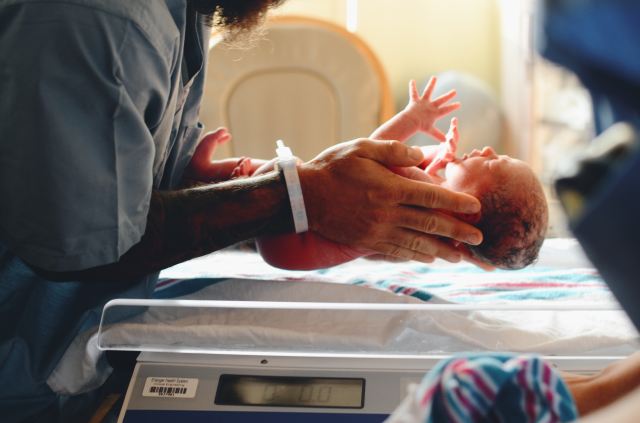Welcoming a new baby is a happy occasion—but the aftermath of giving birth can be unexpectedly challenging, especially when problems like postpartum depression occur. Postpartum depression is a serious issue in the United States. The condition affects 10% to 20% of new mothers and often new mom feel ashamed of experiencing postpartum depression.
Some feel the stigma associated with the condition or feel that they’re failing their child. For this reason, many mothers hide their symptoms and suffer far longer than they should. Or, they just don’t know that what they’re experiencing is postpartum depression.
It’s not always possible to prevent the condition, but studies show that a longer maternity leave reduces the risk for postpartum depression. It’s possible that moms returning to work too quickly can lead to feelings of guilt and other negative self-talk about leaving their baby in the care of someone else, combined with the stress of balancing a new baby and the demands of the workplace.
Becoming a mother initiates a huge shift in a woman’s life and sense of identity. Normal routines change, priorities are different, and lack of sleep can cause many new parents to experience mental health challenges. With all the emotions and challenges involved with raising a newborn, it’s no wonder some women find themselves experiencing depression, despite the joy of a new child.
And while many women experience temporary “baby blues” after giving birth, this typically subsides quickly. A smaller percentage of moms develop postpartum depression, which can last for much longer and be much more intense. Whether you’re a new mom, a concerned partner, or a friend or family member, it’s important to keep an eye out for the almost invisible signs of postpartum depression.
Coping With Postpartum Depression
To cope with postpartum depression, it’s crucial to know what to look for. Many women dismiss or hide their symptoms, and their partners and family members may not know what to look for. What’s more, many of the symptoms of postpartum depression are nearly invisible, as they mimic many of the difficulties new parents face naturally.
According to Dr. Mariea Snell, assistant director of the online doctor of nursing practice program at Maryville University, it is very normal to have a change in your mood just after having a baby.
“The concern comes in when after about 2-3 weeks these feelings don’t change or get worse. Some red flags for postpartum depression are: feeling uninterested in activities that you normally enjoyed, being tearful, feeling guilt, expressing fear of being a bad mother, having difficulty with making decisions and change in eating and sleeping patterns.”
Classic symptoms of postpartum depression are sadness, hopelessness, feeling overwhelmed and inadequate, issues with self-esteem, and trouble connecting or bonding with the baby. New moms may have anxiety or cry frequently, withdrawing from loved ones.
Women with postpartum depression may also face severe exhaustion and difficulty sleeping. As many new parents are sleep-deprived, it can be hard to determine whether depression or middle-of-the-night baby needs are to blame.
Moms who are struggling with postpartum depression may be feeling hopeless, but there are ways to cope with the problem. Lifestyle changes, including getting more exercise, cutting down on caffeine, and practicing meditation are just some of the ways to reduce postpartum depression. If these modifications don’t work, antidepressants may be the best option.
Women should never feel ashamed about seeking treatment for postpartum depression. It’s time to break down the stigma. By taking care of their own needs, new moms will not only feel better, but they’ll be able to better enjoy their baby’s first years.
Risk Factors for Postpartum Depression
Several factors can increase a new mother’s risk of developing postpartum depression. Not surprisingly, a history of anxiety and depression is a risk factor. Unbalanced hormone levels also play a role in postpartum mental health. New moms and mothers with babies who have health problems or are very fussy are also more likely to develop postpartum depression, as are women who do not have a strong support system and feel isolated from other adults.
Many of these risk factors can be mitigated by a caring and attentive partner or the support of friends and family members. Women need to feel like they’re not alone and they need time to take care of themselves and have a break.
More Than Baby Blues
Postpartum depression is much more serious than the “baby blues” many women get soon after giving birth. Mood swings, crying, anxiety, and other symptoms are short-lived during the baby blues and usually last only a few days or weeks.
“If these symptoms do not get better or get worse around the 3-6 week point it could be time to consult with a provider. Telehealth can be a great way to connect with someone. You can get advice or care without having to disrupt your schedule,” says Dr. Snell.
Everyone needs to contribute to making sure a woman feels supported postpartum. Even simple gestures that allow new moms to eat healthfully or take a shower contribute positively to her mental health and well-being. Postpartum depression is a serious issue, and it’s crucial to recognize and cope with it.











